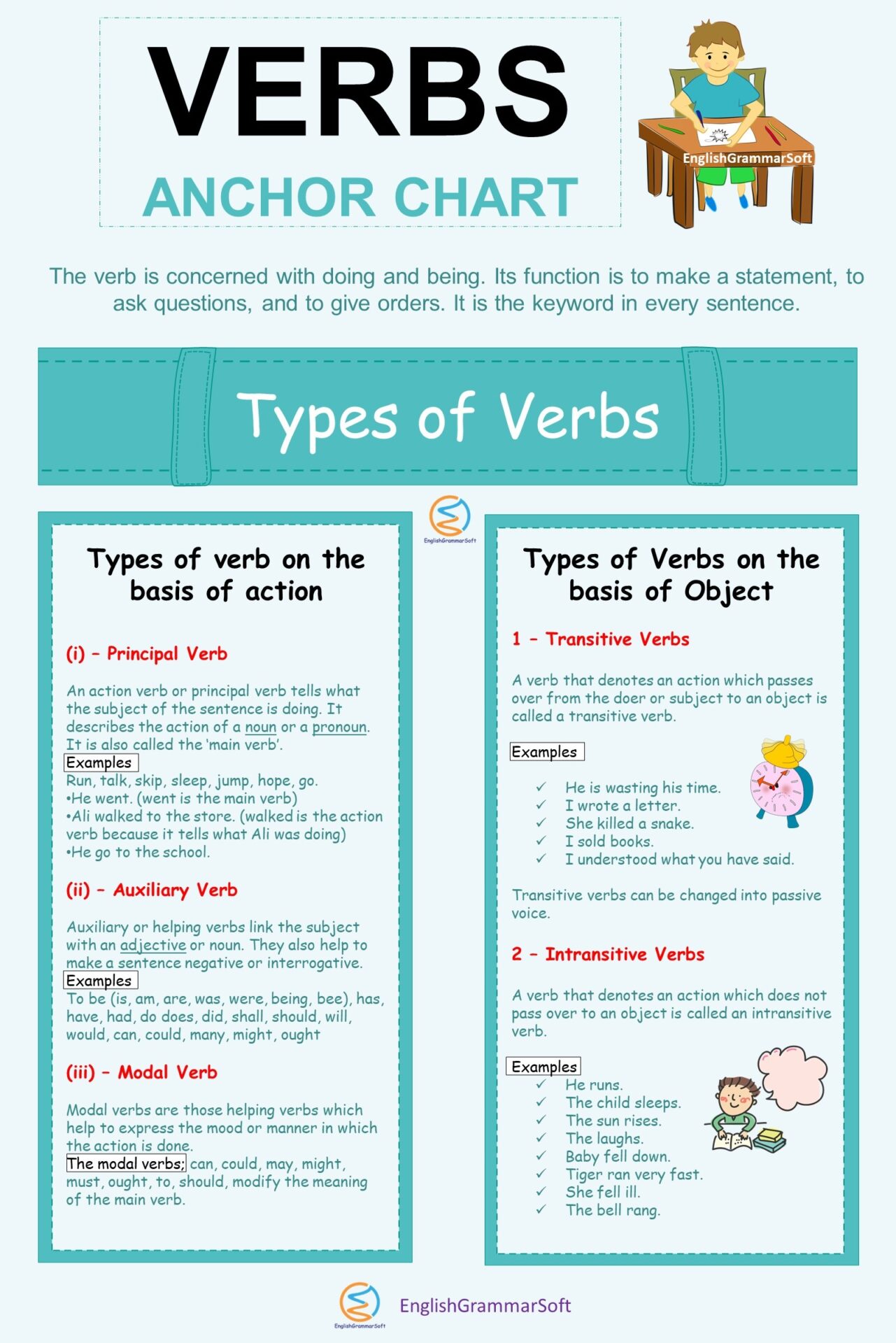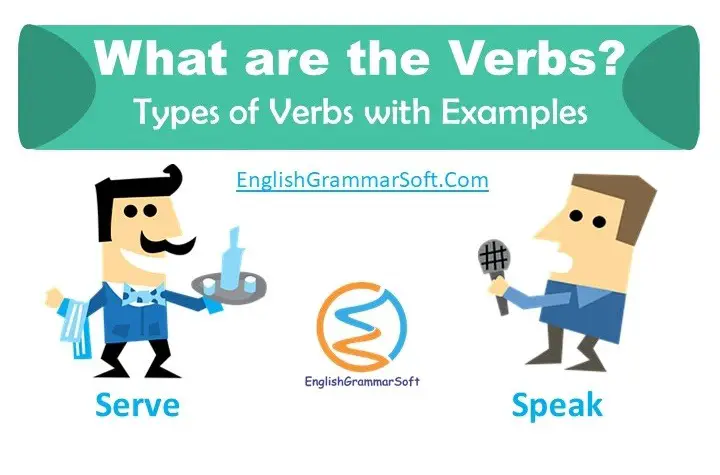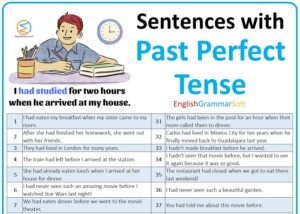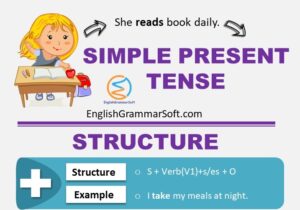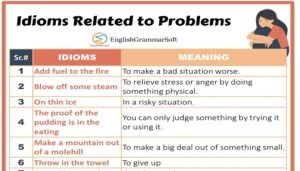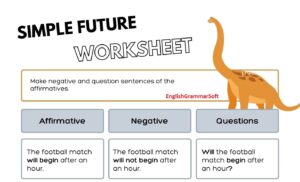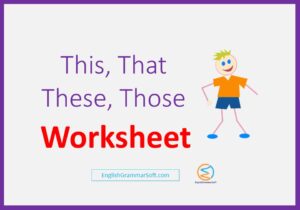What are the verbs in English? | Types of Verbs and Examples
What are the verbs in English?
The verb is concerned with doing and being. Its function is to make a statement, to ask questions, and to give orders. It is the keyword in every sentence.
In this post, we are going to narrate these points.
- Definition of Verb
- Verb Examples
- Types of Verbs
- Types of Verb Voice
- Forms of Verbs
- Classification of Verbs
1 – Definition
A verb is a word used for saying something about the activity of a person or a thing. It is used to express an action or state.
It is used with a subject to say what someone suffers or something does or what happens to them.
2 – Examples
As, is, was, go, come, eat, drink, sleep, read, write, etc.
- He plucks flowers.
- We help the others.
- Tom opened the door.
- The chair is broken.
3 – Types of Verbs
A verb has been classified into two main types
- Types of verb on the basis of action
- Types of verb on the basis of object
3.1 – Types of verb on the basis of action
3.1(i) – Principal Verb (Main Verb)
An action verb or principal verb tells what the subject of the sentence is doing. It describes the action of a noun or a pronoun. It is also called the ‘main verb’.
Examples
Run, talk, skip, sleep, jump, hope, go.
- He went. (went is the main verb)
- Ali walked to the store. (walked is the action verb because it tells what Ali was doing)
- He go to the school.
3.1(ii) – Auxiliary Verb (Helping Verb)
Auxiliary or helping verbs link the subject with an adjective or noun. They also help to make a sentence negative or interrogative.
Examples
To be (is, am, are, was, were, being, bee), has, have, had, do does, did, shall, should, will, would, can, could, many, might, ought
Uses of Helping Verb
- A helping verb is sued with a principal verb. For example
- I can speak English. (‘can’ is used with main verb ‘speak’)
- We are playing cricket.
- A helping verb helps to make sentences negative and interrogative.
- I cannot speak English.
- Are you playing cricket?
- A helping verb is also used as a ‘principal verb’.
- I have many friends.
- She is a teacher.
3.1(iii) – Modal Verb
Modal verbs are those helping verbs which help to express the mood or manner in which the action is done. The modal verbs; can, could, may, might, must, ought, to, should, modify the meaning of the main verb.
3.2 – Types of Verbs on the basis of Object
- Transitive Verbs
- Intransitive Verbs
3.2.1 – Transitive Verbs
A verb that denotes an action which passes over from the doer or subject to an object is called a transitive verb.
Examples
- He is wasting his time.
- I wrote a letter.
- She killed a snake.
- I sold books.
- I understood what you have said.
Transitive verbs can be changed into passive voice.
Examples
| Active Voice | Passive Voice |
| I am writing a letter. | A letter is being written by me. |
| He is serving food. | Food is being served by him |
| He is plucking flowers. | Flowers are being plucked by him. |
Some transitive verbs have more than one object.
- I give him a pen.
- Mr. Ali teaches as English.
Some verbs are transitive and intransitive.
- Birds fly.
- He is flying a kite.
- The bus stopped.
- He stopped the bus.
3.2.2 – Intransitive Verbs
A verb that denotes an action which does not pass over to an object is called an intransitive verb.
Examples
- He runs.
- The child sleeps.
- The sun rises.
- The laughs.
- Baby fell down.
- Tiger ran very fast.
- She fell ill.
- The bell rang.
4 – Types of Verb Voice
4.1 – Active Voice
A verb is in the active voice, when its subject does something; as
- He reads a newspaper.
- He eats an apple.
4.2 – Passive Voice
A verb is in the passive voice, when something is done to its subject; as
- A story is read by him.
- An apple is eaten by him.
- A glass has been broken by her.
5 – Forms of Verb
5.1 – Infinitive
There are four parts of verb which do not change their form with changing conditions. These are called infinite verbs, since they are not infinite or limited by tense, number, person etc. It is usually proceeded by the word to. It can also be used as a noun.
For example, to go, to write.
- To err is human.
- To rise early is good thing.
Example: When infinitive qualifies a verb
I have come to see you.
Example: When infinitive qualifies an adjective.
He is too weak to walk.
When infinitive qualifies a noun.
You are not allowed to smoke.
5.2 -The Infinitive Proper
In such sentences, we use verbs as to go, to see, to write etc.
5.3 -The Present Participle
Going, seeing, writing etc. Base form of verb + ing are used while making the present participle sentences.
5.4 -The Past Participle
In past participle, we use third form of verb (V3) such as gone, seen, written etc.
5.5 – The Gerund
It is also called verbal noun. It has the same form as the present participle. For example, “His writing is bad”, “I examined his writing.”
5.6 – Three Forms of Verb
Rule 1
We add ‘d’ or ‘ed’ to be base form such hope -> hoped, listen -> listened
Rule 2
Sometimes the final consonant of the base form has to be doubled such as permit -> permitted
Rule 3
If the last letter of the base form of verb is ‘y’ and the letter used before ‘y’ is not a vowel, we replace ‘y’ with ‘ied’ to make its second and third form. For example, copy -> copied, bury -> buried
Some examples of first, second and third form of the verbs are given here.
| First Form (V1) | Second Form (V2) | Third Form (V3) |
| Accuse | Accused | Accused |
| Act | Acted | Acted |
| Agree | Agreed | Agreed |
| Attend | Attended | Attended |
| Bury | Buried | Buried |
| Drag | Dragged | Dragged |
| Hire | Hired | Hired |
6 – Classification of Verbs
Verbs can be classified into following forms.
- Regular verb
- Irregular verb
6.1 – Regular Verbs
A verb that has form forms and follows the normal rules is called regular verb. A regular verb can be one of these forms.
- Walk, play
- Walks, plays
- Walking, playing
- Walked, played
Note: In regular verbs, the past form is used for the past tense, and is also used as the past participle.
6.2 – Irregular Verbs
A verb which has three forms and which does not follow the normal rules.
For example,
- Steal -> Stole -> Stolen
- Write -> Wrote -> Written
Some irregular verbs are as given below.
| Present | Past | Past Participle |
| Abide | Abode | Abided |
| Bid | Bade | Bidden |
| Bring | Brought | Brought |
| Hide | Hid | Hidden |
| Lead | Led | Led |
| Leave | Left | Left |
Further Reading
